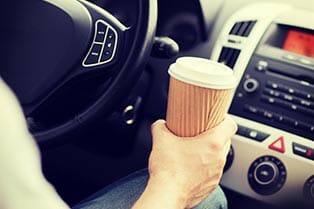Individual Responsibility or Corporate Manipulation? The Real Hot Coffee Case – Winchester, TN?
February 8th, 2016 by Attorney John Colvin

Hot Coffee is a 2011 documentary film, directed by Susan Saladoff (an attorney with 26 years’ experience), that premiered at the Sundance Film Festival and later aired on HBO. This informative film currently streams on Netflix.
Most people only know Liebeck v. McDonalds as the “hot coffee case.” Many use the case as proof of frivolous lawsuits brought by people who just want a big payday. Hot Coffee aims to tell the story behind the “real” hot coffee case.
The film reveals the commonly held belief that a “young woman” decided to sue Mc Donald’s after she drove her car through a fast food drive-through, carelessly spilled coffee on herself and sustained minor burns due to her being irresponsible and needing to be “warned” that her hot coffee would be hot. Most people view the jury verdict as outrageous because a jury decided to give her $2.7 million in damages just because she didn’t realize her hot coffee would be hot. This is the story that most people believe when they think of the hot coffee lawsuit, but it couldn’t be further from the truth.
The film details the little known facts involved in the Liebeck case. Ms. Liebeck was actually a grandmotherly 78-year-old woman, who was a “passenger” in a parked car, and she simply opened the lid of her McDonald’s coffee to put cream and sugar in it. Ms. Liebeck did not have minor injuries. In reality, she sustained severe second- and third-degree burns all over her groin area. The McDonald’s coffee that severely injured Ms. Liebeck was scalding hot, similar to the radiator temperature of a car while being driven. The trial revealed that McDonald’s instructed its franchises to keep their coffee at a holding temperature of 180-190 degrees Fahrenheit. More troubling is the revelation that McDonald’s had received at least 700 burn complaints over a ten-year period.
Not only does the film present the actual facts in Ms. Liebeck’s case, but Ms. Saladoff shows the real reason the American public has heard so much inaccurate information about Ms. Liebeck: A “big business” public relations campaign sought to manipulate the media in order to advance their interests in obtaining tort reform legislation. Ms. Saladoff’s documentary film raises the alarm for the American public to investigate the truth on their own and not blindly believe whatever the media tells them. As shown in the documentary, the facts in this case as presented in the popular media weren’t anything close to the truth.
So the next time you read an outrageous story that is being used to prove an argument, take the time to investigate all viewpoints and remember there are ALWAYS two sides to every story and the truth is probably somewhere in between. The “hot coffee” case is a reminder of how public opinion can be manipulated against the greater good. As citizens, we should be able to protect our families and not allow our American court system to be influenced by false information in favor of powerful corporations that lobby against just compensation.
John R. Colvin, Attorney at Law, has successfully represented numerous clients throughout Tennessee and Alabama who have been the victim of personal injury. For 20 years, he has been helping victims put their lives back on track after a motor vehicle crash, workplace accident or injury caused by a dangerous product, and he is ready to help you. For advice on how to proceed next or if you have any questions about this topic, call 1-844-683-6229 or submit an online form. Put his bold approach and client focus to work for you.
Disclaimer*
The information on this website is for general information purposes only. Nothing on this site should be taken as legal advise for any individual case or situation. This information is not intended to create, and receipt or viewing does not constitute, an attorney-client relationship. No representation is made that the quality of the legal services to be performed is greater than the quality of legal services performed by other lawyers.

